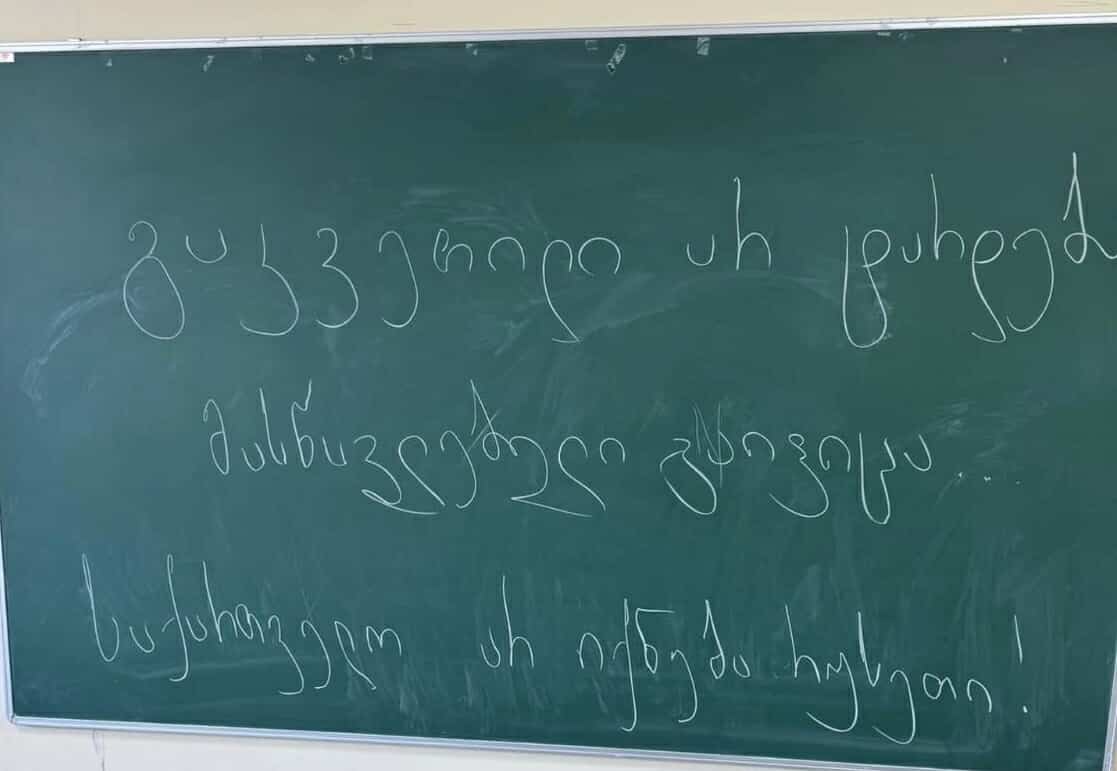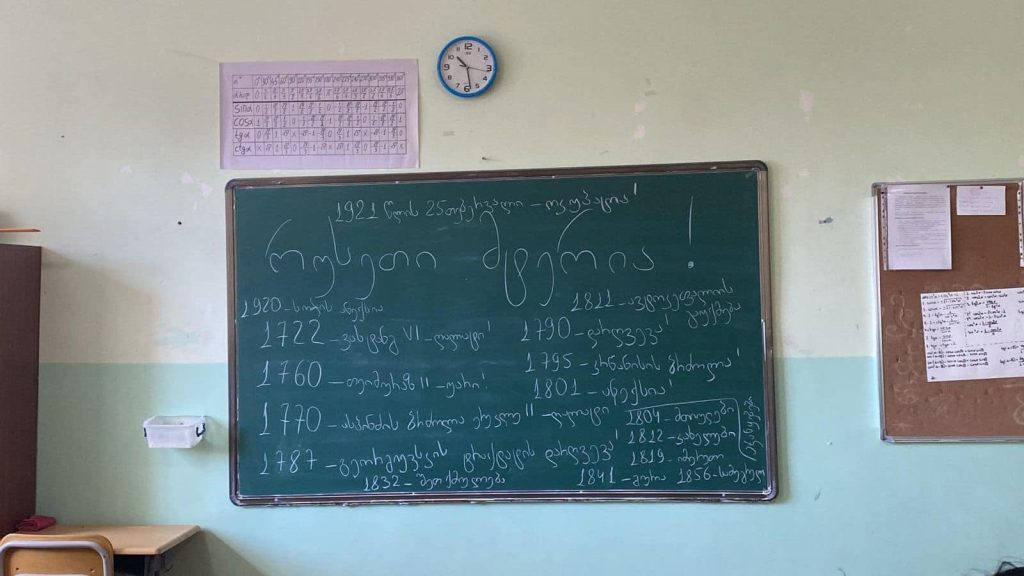
Strikes engulf Georgia amid protests
After Georgian Prime Minister Irakli Kobakhidze announced that the country would suspend EU membership talks until 2028, a wave of large-scale protests erupted across various cities in Georgia.
But the resistance extends beyond street protests. Schools and universities—more than a hundred so far—are publishing open letters expressing disagreement with the government and demanding a return to the path of European integration.
Several Georgian diplomats have also publicly condemned the government’s policies, with some resigning from their positions.
Below is a list of such notable acts of dissent known so far. This article will continue to be updated.
Diplomats
On the morning of November 29, it was reported that Georgia‘s ambassador to Bulgaria, Otar Berdzenishvili, is stepping down from his position. He announced his decision on the social platform X.
Berdzenishvili wrote that during his two years in diplomatic service, he and his colleagues actively worked towards Georgia’s Euro-Atlantic and European integration. He also expressed solidarity with the protesters.
“No to violence against peaceful demonstrators! Full solidarity!” the diplomat wrote.
— Otar Berdzenishvili (@OtariB) November 29, 2024
Otar Berdzenishvili began his diplomatic career in 2000. Since 2023, he has served as Georgia’s ambassador to Bulgaria. Prior to this, he worked as an advisor to the Minister of Foreign Affairs and was also Georgia’s ambassador to the Republic of South Korea.
- Georgia’s president urged the people, opposition, and diplomats to “resist and fight to the end”
- European Parliament: Georgia’s October 26 elections ‘rigged’ – What’s in resolution?
Another diplomat, Georgia’s ambassador to South Korea, Tarash Papaskua, wrote on social media:
“Russia continues to occupy 20% of our country’s territory. It is waging a destructive war against Ukraine. It is fighting against Europe, the democratic world, and threatening global security. In this situation, we need Europe and NATO more than ever. We need greater solidarity and support from the free world!”
Georgia’s ambassador to the Czech Republic, Tea Maisuradze, stated that for Georgia, especially in the context of Russian occupation, there is no alternative to European Union integration.
The ambassador wrote that she and her fellow diplomats have worked tirelessly for many years to advance Georgia’s path toward EU and NATO membership and to strengthen ties with strategic partners.
“Today, with more than 20% of our country’s territory occupied by Russia, deepening and strengthening relations with our Western friends and allies takes on special significance.
Returning to the European family is our country’s historic choice. Full membership in European and Euro-Atlantic structures is, in the interests of our country, without alternative,” the diplomat wrote on social media.
Immediately after the Prime Minister’s briefing on November 28, a joint open letter signed by more than 100 employees of Georgia’s Ministry of Foreign Affairs was circulated on social media. They expressed their disagreement with the government’s decision to suspend EU membership negotiations.
“The current wave of EU expansion has given Georgia an unprecedented historic opportunity to return to the European family. This situation is linked to international political developments. A unilateral rejection of this opportunity will lead to strategically negative consequences. It is possible that such favorable conditions for joining European and Euro-Atlantic structures may never arise again.
Moreover, halting the negotiation process will result in the country’s isolation. Without the support of Western partners, Georgia faces threats alone, especially as these threats intensify amid ongoing international developments, particularly regarding security,” the letter states.
The Foreign Ministry employees also argued that removing EU membership negotiations from the political agenda contradicts Article 78 of Georgia’s Constitution.
“We remain committed to Georgia’s course of European and Euro-Atlantic integration,” declared the Foreign Ministry employees who signed the open letter.
Universities suspending academic activities
On November 29, several universities in Georgia announced they were suspending academic activities as a form of protest.
Caucasus University stated that academic activities were temporarily suspended due to the current events in the country.
Ilia State University’s academic council issued the following statement: “We are outraged by the rejection of Georgia’s European perspective. We believe it is the duty of the academic community to defend the country’s European future.”
The University of Georgia also announced the suspension of academic activities, stating: “There are moments when everything must be put aside. In the current situation in Georgia, we are halting studies. We believe the primary duty of everyone today is to return Georgia to the path of its European future.”
Sulkhan-Saba Orbeliani University announced that it would suspend classes from 5 p.m. on November 29. Students were informed that updates on the resumption of classes would be sent via email.
GIPA, the Georgian Institute of Public Affairs, joined the protest, stating, “As a university committed to the ideals of democracy and freedom since its founding, GIPA supports Georgia’s aspiration to become a full member of the European family. Academic activities are temporarily suspended.”
The Business and Technology University (BTU) also decided to suspend academic activities, stating, “We share the position of our students, academic staff, and administration regarding the European integration process. The university’s academic council has considered the students’ interests and the current situation and decided to halt academic activities.”
Protest hotspots in schools

“Class is canceled. The teacher is on strike. Georgia will not become Russia!” — this photo of a school blackboard with the message has been widely shared on social media in Georgia. The author of the message is teacher Maia Ekaladze.
“You can punish me. Georgia will not become Russia,” Maia Ekaladze wrote.
Information is also circulating on social media that the 186th public school has also declared a strike.
“We are real teachers! Maybe not all of us, but…” — one of the teachers from this school posted a photo with this caption on social media.
Tbilisi, School No. 136. Anna Tvauri, a history and civic education teacher, wrote on the board in her classroom: “Russia is the enemy!” She then listed key historical facts to support this statement.

Strikes engulf Georgia amid protests
The post Georgian diplomats, universities, and schools launch mass strikes amid ongoing protests first appeared on The South Caucasus News – SouthCaucasusNews.com.







